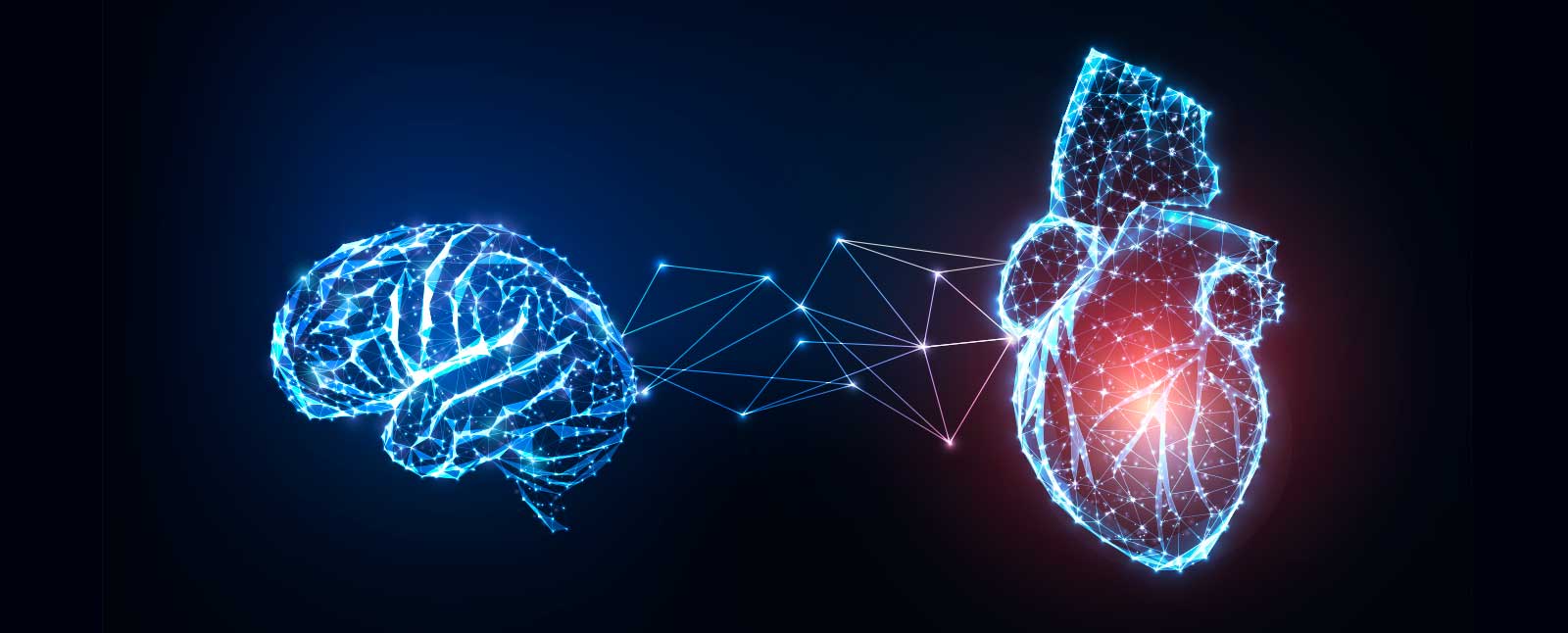On Reason and Emotion

Speech pathologists in several parts of the country are reporting as much as 300% increases in their business from children struggling to learn to speak correctly because the adults around them are so often masked. It appears that when little ones are learning to talk, they need to see the moving lips of talking adults. This phenomenon is an example of the unhappy and usually unforeseen consequences that can follow disruptions in the natural order of human life. When we see disruptions of orderly function in society, there are also disruptions in the internal order of individuals, and the more people who are afflicted with internal disorder, the worse the social disorder will be. One of the features of our present social distress is a large and seemingly growing number of people who are under the control of emotion, unable to think clearly or to engage in disciplined conversation with others, especially others who disagree with them.
For society to function effectively, philosophers have understood for millennia that it is important for emotions to be under the guidance of reason. What follows is a discussion of a long-held understanding of the natural order of the human psyche that has proven to be useful to those interested in critical thinking, productive discourse and effective civic engagement.
In his Essay on Man: Epistle II, English poet Alexander Pope, seeking to set out a system of ethics in poetic form, writes: “Know thyself then, presume not God to scan; The proper study of mankind is man.” The admonition to know ourselves is surely sound advice for people who would govern themselves. In the history of reflection on our human nature as moral and intellectual beings there are three constants: intellect, will, and emotion. Intellect is the seat of reason and its powers are understanding and willing, and importantly, it is the ability to give reasons for what we believe, and in this way the intellect serves to guide human action first by understanding what is our highest good, and from this to making the practical distinctions between good and evil in conduct that determine the will and guide the emotions.
We may think of will as rational desire, or that function of the psyche which, under the guidance of reason, determines our conduct in pursuit of good and avoidance of what is evil or harmful. Much of modern discussion on the will concerns whether it is free or determined by forces outside of the self. In practical action, the principle from which thinking proceeds is that good should done and evil avoided, and this principle is the product of the observation that we are naturally drawn to the good. So Aristotle begins his study of ethics this way: “Every art and every investigation, and likewise every practical pursuit or undertaking, seems to aim at some good: hence it has been well said that the Good is That at which all things aim.” So then, if we are internally disposed to seek what is good and to avoid what is evil, it seems to follow that any choice we take that is the product of our own deliberation, and not of some external compulsion, is a choice freely taken.
What we call emotion was for many centuries referred to as the passions following the Latin word that means to suffer or to undergo something. In other words, the passions are those inner feelings that happen to us. In the 4th century B.C., Aristotle observed that our souls (psyche) have both rational and irrational parts and the passions, though irrational because bodily, are able to participate with the intellect in governing the person provided they are under the guidance of reason. In other words, the emotions are not enemies of reason although they can be, but rather reason, will, and emotion are parts of the same personality and when properly ordered one to another, the various parts of our personalities have important roles to play. Unfortunately, Aristotle did not develop this idea very much, but most fortunately, and much later, St. Thomas Aquinas did. Aristotle died in 322 B.C. and most of his writings that have survived were unknown in northern and western Europe until the 12th and 13th centuries. In the 13th century the Dominican friar St. Thomas Aquinas set about to explain the essential compatibility of philosophy and theology and an important element of this effort was to demonstrate that the philosophy of Aristotle was not a challenge to Christian thought but when carefully understood, rather than misused for ideological advantage, the works of Aristotle explained much that Thomas and his contemporaries were only then discovering. Nevertheless, because Aristotle lived a thousand years earlier than Aquinas, there was much he couldn’t have known and this is where Aquinas’ interpretations of the man he called “the Philosopher” were to make a great contribution to our understanding of ourselves. In the matter of our emotions, Aquinas divides them into affectionate feelings and aggressive feelings each of which exist in antithetical pairs, with the exception of anger. Our emotions exist within us in antithetical pairs because of a truth about the human soul that is captured in the first principle of practical reason: good should be done and evil avoided. The idea is that when the intellect determines what is good and what is evil, our wills, or rational desire, are attracted to the good and repelled by the evil. This attraction and repulsion causes feelings in us that are, when properly guided, suited to attraction to what is good and repulsion from what is evil. We can see in this that it matters what we determine to be good and what we determine to be evil.
The affectionate feelings are experienced by us as “straightforward” reactions to good or bad and include joy, sadness, love, hate, desire, and aversion. Feelings toward good and bad that are experienced by us as challenging, requiring significant effort to achieve or avoid, are aggressive feelings that include feeling bold, or afraid, or hopeful, or angry. So then when we encounter what we determine to be good, it provokes in us a feeling of a greater or lesser intensity that Aquinas calls love, or the desire for the good of self and others. What is evil provokes a form of hate that is the emotion antithetical to love. If that good is not yet possessed, it creates in us a feeling of desire, and if we confront an evil to be avoided, we feel aversion or disgust. When the good thing is finally achieved, it creates what Aquinas calls a repose of desire that is a feeling of enjoyment, of being pleased, and if it is an evil we wanted to avoid but failed, we experience pain and become sad. Aggressive feelings function similarly, but with more intensity owing to the greater effort called for. So when seeking a desired good, we may feel hope at the possibility of achieving it, or despair at the idea of failing to achieve it. If we contemplate an evil not yet upon us, we may feel fear at the danger or boldness in the resolve to defeat it. Good acquired does not provoke aggressive feelings because a good possessed no longer presents a challenge to acquisition, while an evil upon us provokes anger. Concerning anger, however, Aquinas argues there is no antithetical emotion because he says, following Aristotle, that when anger passes, one simply calms down. St. Thomas concludes his discussion on these points writing: “So we see that there are three groupings of affections: loving and hating, desiring and aversion, feeling pleased and feeling sad; and three of aggressive feelings: hoping and despairing, feeling afraid and feeling bold, and feeling angry (which has no antithesis). That makes eleven distinct species of feeling—six affective and five aggressive—which comprise every animal feeling there is.”
The last comment about animal feelings expresses Aquinas’ view that all animals have emotions, they are phenomena of the body, and this is how we know they are irrational. But in human beings the emotions must be under the guidance of reason if they are to function in properly human ways, serving our good rather than causing erratic behavior and harm. We may share emotions with non-human animals, but it is not fitting for a human being to behave like a beast because unlike them, we are possessed of reason. People seek goals for reasons often beyond the immediate task. A young person attends a university in order to obtain a degree, but getting the degree is not the ultimate goal. The degree, one hopes, leads to employment that provides income that makes possible a life that is comfortable, secure, and interestingly challenging. We may then ask Aristotle’s question whether there is a master good, that is, a good at which our conduct aims for no goal beyond it, but for that good in itself. His answer was that we seek the inner peace and contentment that is the consequence of a well-ordered soul (the word he uses is usually translated as “happiness,” but that translation is not clear). So in this process we can see the importance of developing skill in thinking because when a good is accurately identified by reason, the will, our capacity for rational desire, will be drawn to it and we may thus deliberate about practical ways of achieving the goal. The emotions are important in affirming what is good, what is harmful, and in producing the feelings of satisfaction or dissatisfaction appropriate to actions done well or badly. Emotions are important, and they serve us best when they occupy their proper place in the natural order of the human psyche.


